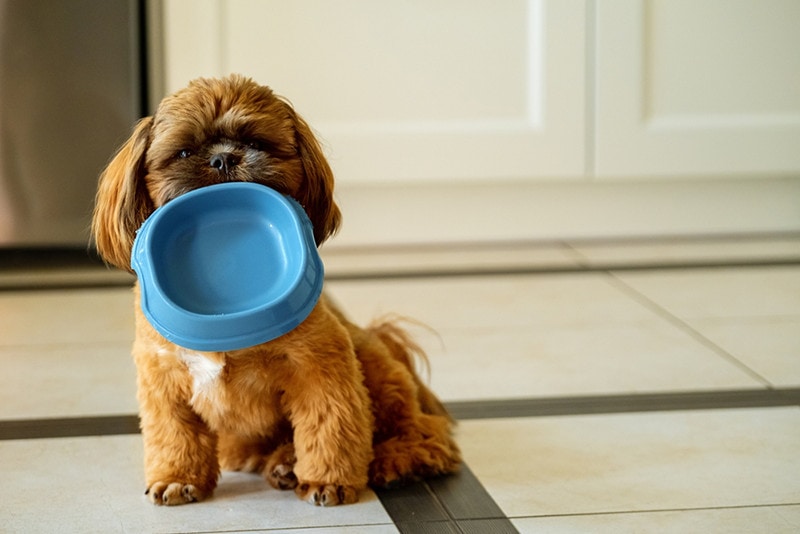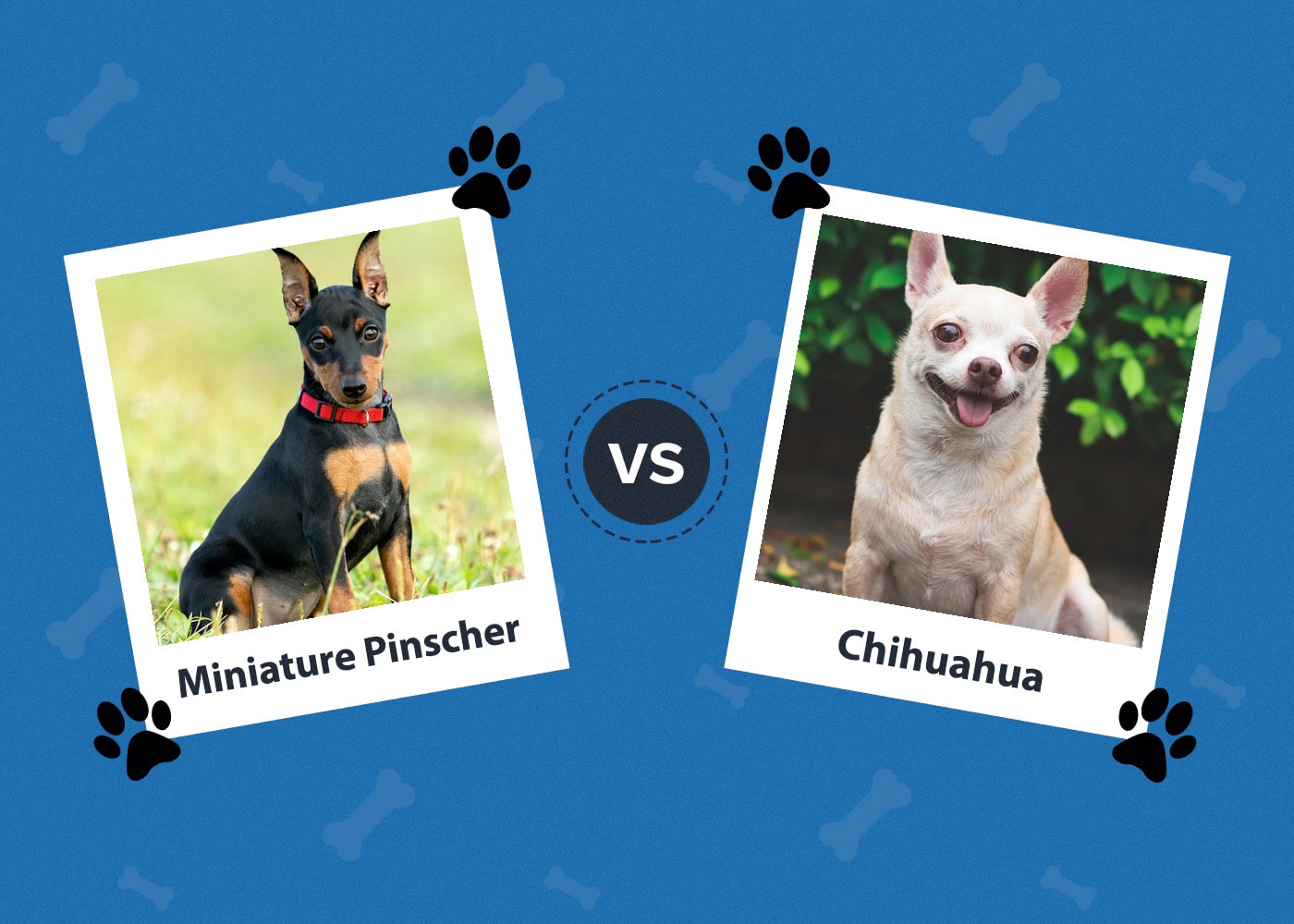Are Great Pyrenees Good With Kids? Facts & FAQ

Updated on
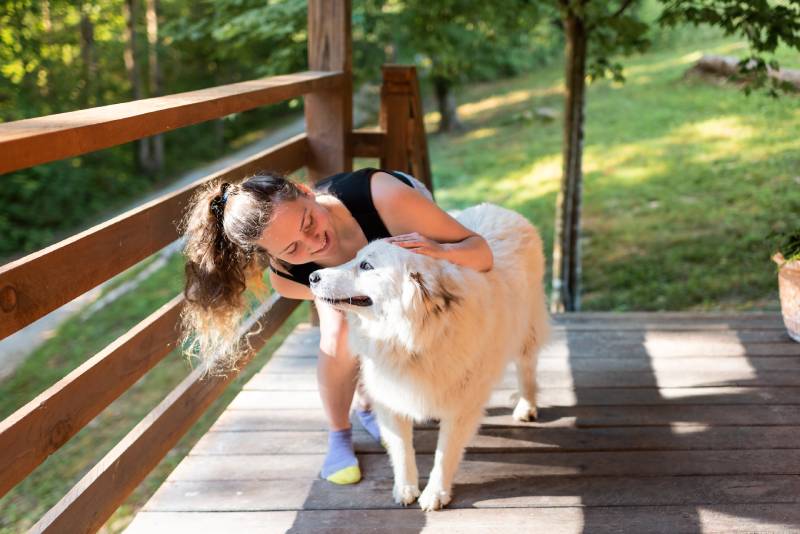
Click to Skip Ahead
Let’s not sugarcoat it—the Great Pyrenees is a big dog! If you’ve been toying with the idea of adding one of these big, fluffy furballs to your family, you’re probably wondering, “Are Great Pyrenees good with kids?” Well, you can let out a sigh of relief. The answer is a resounding yes, Great Pyrenees are great with kids!
But don’t rush off to the breeder just yet; these majestic canines require specialized care, and there’s a lot of important information you need to know. Let’s explore all the essentials about the incredible Great Pyrenees breed.
Is the Great Pyrenees a Good Family Dog?
The Great Pyrenees have a temperament that’s quite agreeable for a family setting, yes. They’re loving, patient, and, you guessed it, excellent with kids. Looking back, it’s easy to see why.
Their work history involves guarding flocks, so they’re naturally protective but not overly aggressive. This breed seems as if it were born to be both a babysitter and security guard. Given its love of family, you can expect an excellent family dog that lives to ensure the safety and protection of its owners.
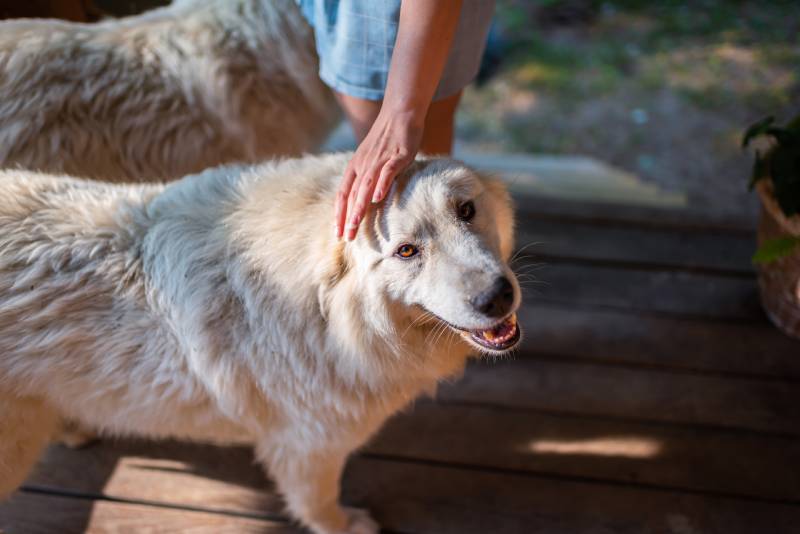
Training Needs: What to Know Going In
Training the Great Pyrenees can be a bit of a challenge—not because they’re unintelligent but because they have an independent streak. This is a dog that’s used to calling the shots while guarding sheep in open fields, remember?
So, you’ll need to establish yourself as the leader of the pack without stifling their independence. How do you do this? Keep your training sessions short, sweet, and frequent, emphasizing positive reinforcement.
Are Great Pyrenees Dogs High Maintenance?
For such a large breed, the Great Pyrenees tend to eat less than you’d expect, thanks to their slow metabolism. Around two to four cups of quality dog food daily should suffice. But remember, these dogs are prone to gastrointestinal issues like bloat. So smaller, frequent meals are better than a single large one.
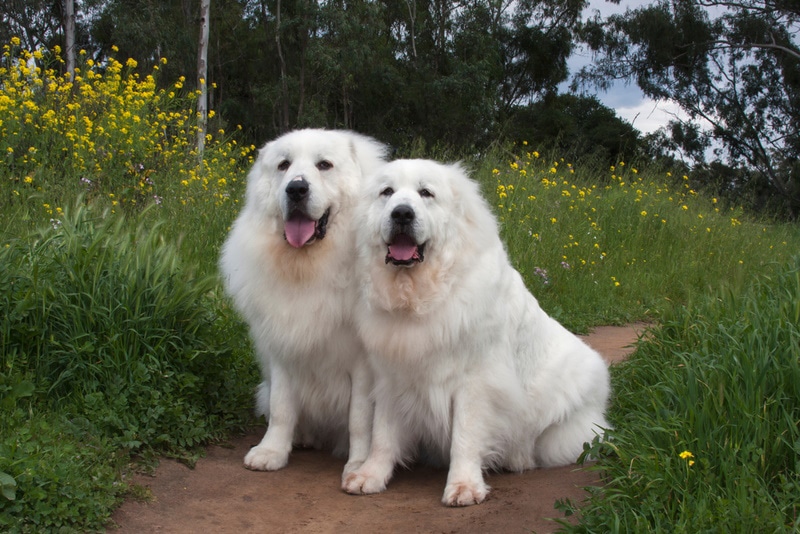
Is This Breed a Barker?
Owning a Great Pyrenees means signing up for some nocturnal barking. This goes back to their breeding history. To protect flocks at all hours, Great Pyrenees dogs naturally want to stand guard and alert their owners to any disturbances.
So don’t be surprised if your furry friend goes the same way. Now, you can train them to minimize their nighttime barking, but to eliminate it is like asking a fish not to swim—it’s in their nature!
Keeping Your Pet Healthy and Safe: 3 Tips You Shouldn’t Ignore
Before wrapping up our guide, we should spotlight an essential topic—keeping your fluffy friend in tip-top shape. While these dogs are generally hardy, they have similar needs as other large breeds.
For one, they have a knack for developing certain health issues such as hip dysplasia, patellar luxation, and even osteosarcoma. Prevention is key here, and regular veterinary check ups serve as your first line of defense.
But there’s more to it than just clinical visits; their daily life also plays a big part in their well-being. Let’s explore important tips to keep your Great Pyrenees healthy:
1. Exercise Requirements
One might assume that due to their size, Great Pyrenees are just gigantic cuddle bugs that would rather snooze all day. Well, not entirely true. While they aren’t exactly Olympic sprinters, they do enjoy some form of physical activity.
Aim for at least 20 to 30 minutes of physical exercise daily. This could be broken down into 10 minutes of a brisk walk, ideally during the cooler parts of the day, and another 20 minutes of playtime in the yard. Games like fetch or tug-of-war are not just physically stimulating but also serve as great bonding activities.
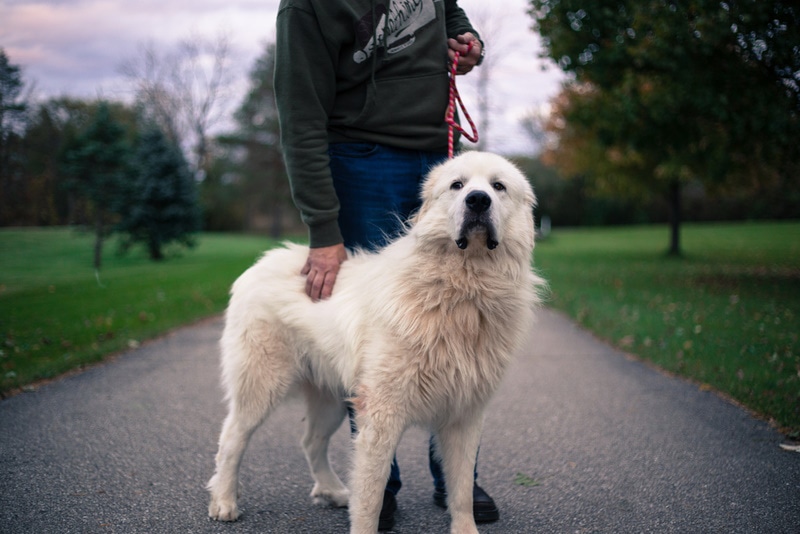
2. Grooming: Managing the Fluff
At first glance, the fur might look self-maintaining, but don’t let that fool you. Due to their thick, double coats, you’ll need to be diligent in brushing them at least every other week to prevent matting and reduce shedding.
Bi-monthly baths are also advisable, but remember, overbathing can strip the coat of essential oils, so tread a fine line. Additionally, don’t forget the basics, like nail trimming and dental care. A well-groomed dog is a happier dog, bottom line.
3. Socialization: A Dog’s Worldview
Great Pyrenees are naturally reserved around strangers, as they are protective by nature. To ensure your pet grows up to be a well-rounded adult, socialization should start early. Any time between 7 and 16 weeks of age is a pivotal starting point for introducing them to various environments, other animals, and humans.
Puppy classes, park visits, and even simple errands can serve as socialization experiences. A well-socialized Great Pyrenees is more likely to be confident and less prone to anxiety.
With these basic but vital tips in mind, you can keep your Great Pyrenees both healthy and social. If you’re ever unsure about anything, be it diet, socialization, or grooming, don’t hesitate to schedule a visit with the vet.
Conclusion
So, are Great Pyrenees dogs good with kids? Absolutely. They are natural protectors with a gentle disposition, making them ideal family pets. With the right care, training, and a little attention to their specific needs, these fluffy giants can add both joy and a sense of security to your household.
- See Also: 20 Surprising Great Pyrenees Facts
Featured Image Credit: Andriy Blokhin, Shutterstock

